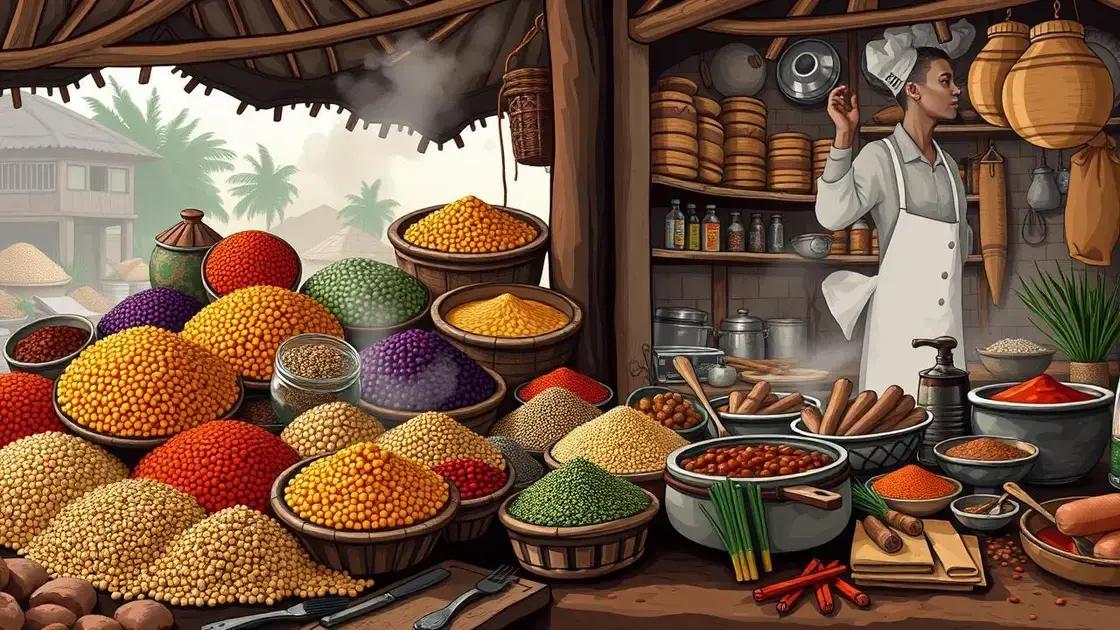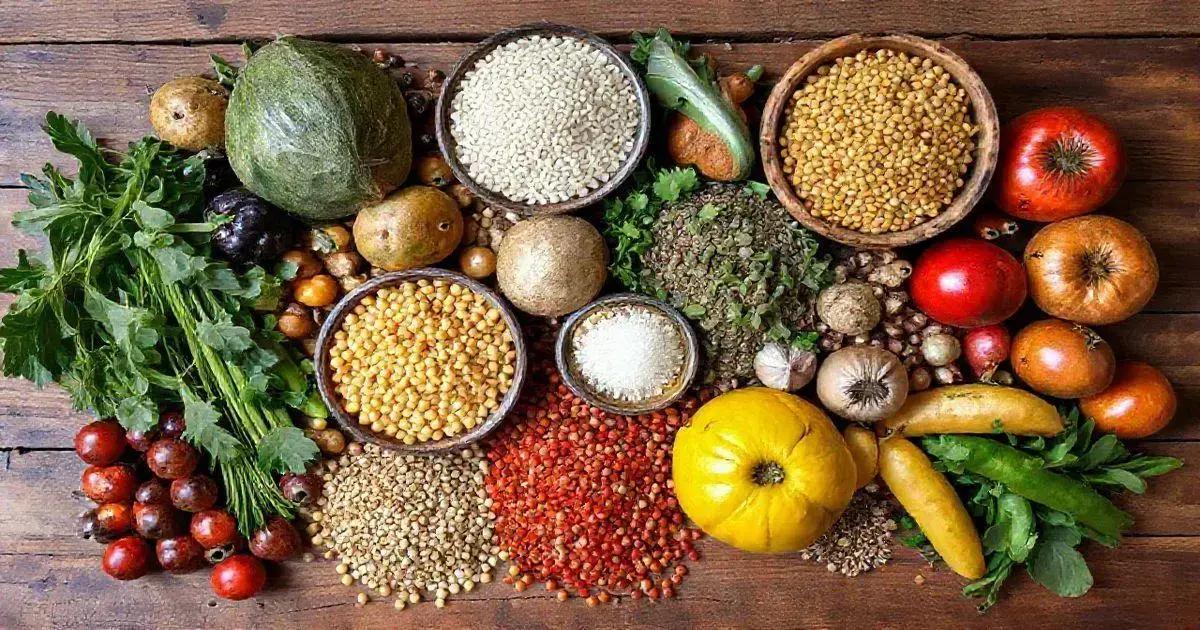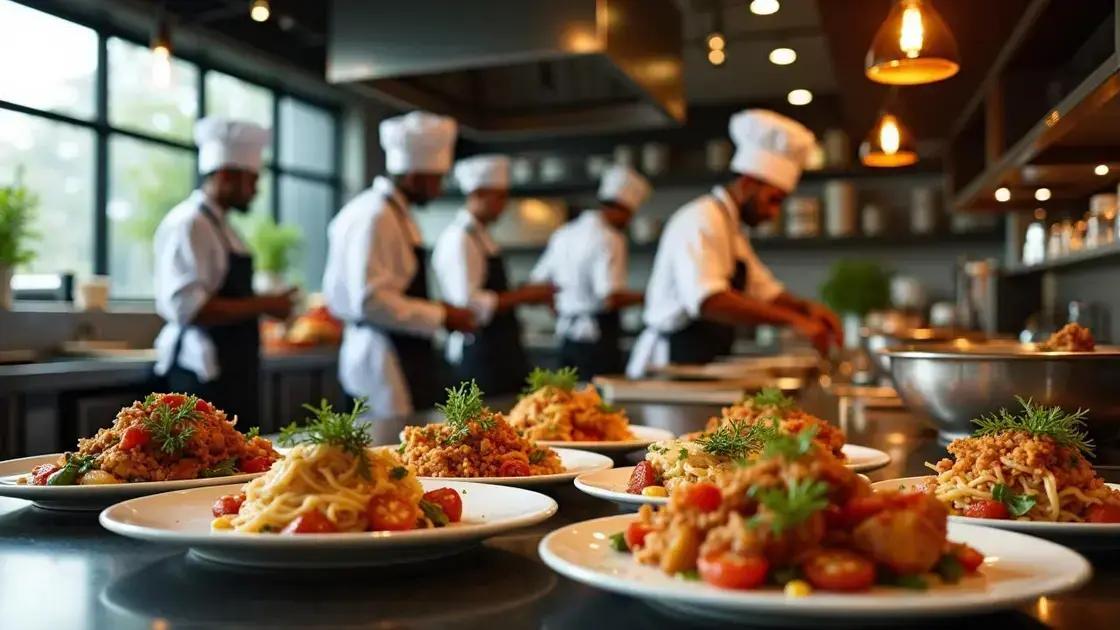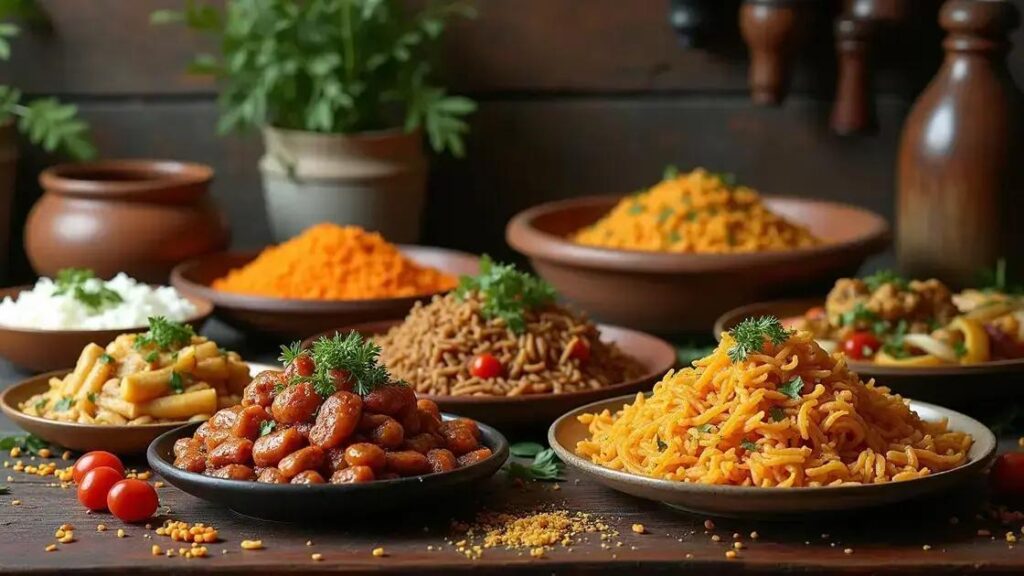African recipes have long-lasting effects on modern cooking by introducing diverse ingredients, nutritious cooking techniques, and rich cultural flavors that enhance global cuisine. Traditional African ingredients offer significant health benefits, while innovative cooking methods preserve nutrition and flavor, making African cuisine an influential part of contemporary gastronomy.
Are you curious about how traditional cooking methods influence food today? The African recipe has long-lasting effects not just on flavor but also on health. These time-honored culinary practices introduce diverse ingredients that boast great health benefits. In this article, we’ll delve into the rich history behind these recipes, explore the health advantages of their ingredients, and discover how they shape contemporary cooking. Join us on this flavorful journey!
The History Behind African Recipes

The rich tapestry of African recipes is woven through centuries of tradition and culture. The history behind African recipes reflects the diverse tribes and ethnic groups across the continent. Each recipe tells a story, connecting generations and preserving heritage.
Origins of African Cuisine
Traditional African cooking began with the use of local ingredients like grains, vegetables, and spices. These early recipes were influenced by climatic conditions, geography, and available resources. Grains such as millet, sorghum, and maize became staples, serving as the foundation for many meals.
Cultural Influences
Trade routes opened channels for spices and new cooking methods to enter the continent. Indian spices, Mediterranean herbs, and even Chinese ingredients began to shape African dishes. This blend of influences created unique flavors and cooking styles.
Traditional Cooking Methods
Cooking methods remained rooted in heritage, often involving communal practices. Methods like steaming, boiling, and roasting over an open fire are still prevalent. These techniques ensure that the essence of flavors is preserved, imparting nutritional benefits.
Every meal prepared using traditional recipes honors ancestors and sustains cultural identity. As these practices continue to evolve, they remind us of the lasting legacy that African cuisine has on the world stage. The historical significance of these recipes ultimately influences how they are incorporated into modern culinary practices.
Health Benefits of Traditional African Ingredients

Traditional African ingredients are not only flavorful but also packed with nutrients that offer various health benefits. Root vegetables, like yams and cassava, are staples that provide energy and are rich in vitamins.
High Nutritional Value
Many African crops, such as teff and fonio, are gluten-free grains with high protein content. They also contain essential amino acids that promote muscle growth. Incorporating these grains helps maintain a balanced diet.
Medicinal Properties
Several traditional African herbs and spices, like ginger and turmeric, have anti-inflammatory properties. These ingredients support the immune system and can prevent chronic diseases. Many families use them in everyday cooking to enhance overall well-being.
Boosting Digestion
Incorporating ingredients such as baobab fruit helps with digestion due to its high fiber content. Furthermore, fermented foods like injera from Ethiopia promote gut health, aiding in nutrient absorption.
Using traditional African ingredients not only enriches meals with profound flavors but also enhances one’s well-being. As more people recognize these health benefits, these ingredients continue to shape modern diets.
How African Cooking Influences Modern Cuisine

African cooking is more than just food; it is a cultural identity that has spread around the globe. Modern cuisine now reflects many techniques and flavors originally from African culinary traditions.
Innovative Ingredients
Ingredients like quinoa and amaranth, popular in African dishes, have made their way into trendy restaurants. Chefs are now experimenting with these grains in salads and bowls, highlighting their nutritional benefits.
Cooking Techniques
Methods such as slow-cooking and steaming, traditionally used in African households, have influenced modern culinary approaches. These techniques preserve flavor while making meals healthier.
Culinary Fusion
Fusion cuisine brings together African flavors and international dishes. For example, jerk seasoning from West Africa is now commonly used to spice up tacos or grilled meats, showcasing the versatility of these flavors.
Quick-casual dining is also embracing African influences with dishes like jollof rice or pepper soup gaining popularity in urban areas. The global interest in African recipes continues to inspire chefs to create innovative dishes that celebrate this rich culinary heritage.
Embracing African Cuisine for a Healthier Future
The exploration of African recipes reveals their rich history and long-lasting effects on modern cooking. Traditional ingredients offer numerous health benefits, while cooking methods enhance flavors and nutrition.
As the culinary world embraces African influences, the fusion of cultures enriches our dining experiences. From innovative ingredients to unique cooking techniques, African cuisine is informing the way we cook and eat today.
By incorporating these diverse flavors and healthful ingredients into our diets, we not only honor the heritage but also promote a healthy lifestyle. The journey of these recipes shows that African cooking truly holds transformative potential for global cuisine.
FAQ – Frequently Asked Questions About African Recipes and Culinary Influences
What are the key health benefits of traditional African ingredients?
Traditional African ingredients, like grains and herbs, are rich in nutrients and often have anti-inflammatory and digestive benefits.
How do African cooking techniques enhance modern cuisine?
Techniques such as slow-cooking and steaming preserve flavors and improve nutrition, impacting how we prepare modern dishes.
Can I incorporate African ingredients into everyday meals?
Absolutely! Ingredients like quinoa and baobab fruit can easily be used in salads, smoothies, or as side dishes.
What is culinary fusion and how does it relate to African cooking?
Culinary fusion blends flavors and techniques from different cultures. African cooking influences this by introducing unique spices and recipes into global cuisines.
Are African recipes difficult to prepare?
Many African recipes are straightforward and rely on fresh ingredients. Once you understand the basics, they can be fun and easy to make.
How can I learn more about African recipes and cooking methods?
You can explore various cookbooks, online cooking classes, or local culinary workshops focusing on African cuisine for a deeper understanding.













